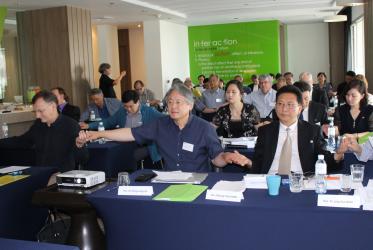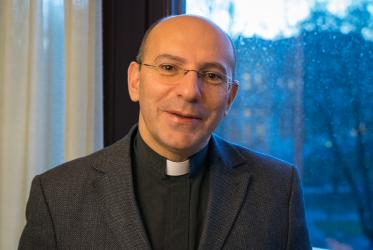“Affirming justice and human dignity” was the theme of the fourth thematic plenary of the World Council of Churches(WCC) 11th assembly on 6 September. The presentation featured a wheelchair dance performance by Fadi El Halabi, a wheelchair user and Ms. Karen Abi Nader, an international artist. In the freestyle dance, Halabi effortlessly spinned around his wheelchair and, with slow coordinated moves together with his dance partner, threw hands in the air symbolizing the joy that can only be felt when all exclusionary and disempowerment practices in church and society are addressed.
06 September 2022







